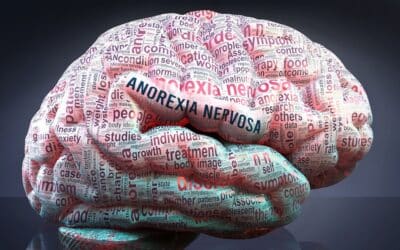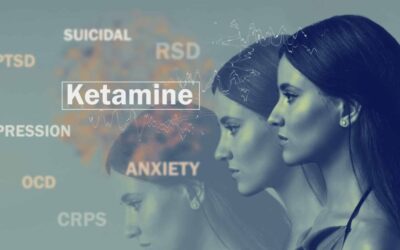A.When the weight of behavioral health challenges or eating disorders becomes too heavy to bear alone, it’s important to know that help is available. For some individuals, the path to recovery may lead to a residential treatment center. Residential treatment center is a place where healing, growth, and self-discovery take center stage. In this blog post, we’ll explore the world of RTCs, shedding light on what they are, the benefits they offer, what to expect during a stay, and how to find the perfect center for you or a loved one.
Understanding Residential Treatment Centers:
Picture a safe space where you or your loved one can focus solely on your well-being, free from the distractions and stressors of everyday life. That’s the essence of an RTC. These specialized facilities provide round-the-clock care for individuals grappling with mental health conditions or eating disorders. With a team of dedicated professionals, individualized treatment plans, and a supportive community, RTCs offer a comprehensive approach to recovery.
The RTC experience is characterized by:
- Structured environment: Daily routines involving therapy sessions, meals, and activities provide a sense of stability and support.
- 24/7 supervision: Qualified professionals are available around the clock to ensure your safety and well-being.
- Individualized treatment plans: Each program is designed to address your specific needs and goals for recovery.
- Supportive community: You’ll connect with others on a similar journey, fostering a sense of belonging and understanding.
- Focus on holistic well-being: Treatment addresses not just the symptoms but also the underlying causes of your condition.
Alongside the professional support, you’ll find solace in connecting with others who understand your struggles, fostering a sense of belonging and shared purpose.
The Benefits of Residential Treatment:
When outpatient care isn’t enough, residential treatment offers a higher level of support and intensive intervention. By immersing yourself in a therapeutic environment, you can accelerate your progress and fully dedicate yourself to the healing process. The reduced distractions and structured setting allow you to prioritize self-care and focus on the work necessary for lasting recovery.
For individuals with eating disorders, RTCs provide a safe space to develop a healthy relationship with food. Structured meals and nutritional support are integral parts of the treatment plan, helping you establish positive eating habits. Moreover, the development of life skills and coping mechanisms equips you with the tools to navigate challenges beyond the walls of the treatment center.
What to Expect During Your Stay:
Stepping into an RTC marks the beginning of a transformative journey. Upon arrival, you’ll undergo a comprehensive intake assessment to determine the best course of treatment. From there, your days will be filled with individual therapy sessions, group therapy, and educational workshops. If needed, medication management and nutritional counseling will be provided by qualified professionals.
Beyond the clinical aspects, RTCs often incorporate activities that foster personal growth and self-discovery. Life skills training, stress management workshops, and creative outlets help you build a strong foundation for long-term recovery. The daily routine provides structure and stability, while also allowing time for reflection and relaxation.
Family involvement is often encouraged, with some centers offering family therapy sessions. This can be a powerful tool for rebuilding relationships, enhancing communication, and creating a support network that extends beyond the treatment center.
Finding the Right RTC for You:
With numerous RTCs available, it’s crucial to find one that aligns with your specific needs and values. Start by considering the type of program you require – one that specializes in your mental health condition or eating disorder. Research the center’s treatment philosophy and ensure it resonates with your beliefs and goals.
Accreditation and licensing are essential factors to consider, as they ensure the center adheres to high standards of care. Also, consider the location and amenities offered, as a comfortable and serene environment can enhance your healing process.
Navigating Insurance Coverage for Residential Treatment Centers:
When considering residential treatment centers (RTCs) for mental health or eating disorders, one of the most pressing concerns is often the cost and whether insurance will cover the treatment. The good news is that many insurance plans do provide some level of coverage for RTCs. However, the extent of coverage can vary significantly depending on factors such as the specific insurance plan, the level of care required, and the reason for treatment. In this blog post, we’ll explore the different types of insurance coverage available for RTCs and the factors that can affect your coverage.
Private Insurance Coverage:
If you have private insurance, either through your employer or purchased individually, there’s a good chance that your plan may cover residential treatment for mental health and eating disorders. However, it’s important to understand that the extent of coverage can vary greatly based on your specific plan and your individual needs. Some plans may cover a significant portion of the cost, while others may have higher deductibles or co-pays. To get a clear understanding of your benefits, it’s essential to review your insurance policy thoroughly or reach out to your insurance provider directly.
Affordable Care Act (ACA) Plans:
Under the Affordable Care Act (ACA), mental health and substance abuse treatment are considered essential health benefits. This means plans sold through the Health Insurance Marketplace are required to cover these services. However, the level of coverage for RTCs may vary depending on your state and the specific plan you choose. It’s crucial to carefully review the details of any ACA plan you’re considering understanding what’s covered and what out-of-pocket costs you may be responsible for.
Medicare and Medicaid Coverage:
For individuals over 65 or those with certain disabilities, Medicare provides limited coverage for inpatient mental health treatment, which may include stays at RTCs. However, there may be restrictions on the length of stay and the specific services covered. Medicaid, a joint federal and state program for low-income individuals, may also cover RTC stays, but coverage varies widely by state. It’s important to check with your state’s Medicaid office to understand what benefits are available to you.
Navigating the Insurance Process:
Given the complexity of insurance coverage for RTCs, it’s crucial to be proactive and informed when seeking treatment. Before committing to an RTC, reach out to your insurance provider directly to understand your specific coverage. Learn about the requirements for pre-authorization, and potential out-of-pocket costs. Many RTCs also have staff members who are experienced in navigating the insurance process and can help you understand your options and assist with obtaining coverage.
While the process of securing insurance coverage for residential treatment can be daunting, it’s important to remember that many insurance plans do provide some level of coverage for this vital care. By understanding your insurance benefits, the factors that affect coverage, and the resources available to help you navigate the process, you can take important steps towards accessing the treatment you need. Remember, seeking help is a sign of strength, and with the right support, recovery is possible.
Finally, RTCs are a Great First Step on the Path to Getting Well:
Residential treatment centers offer a beacon of hope for individuals struggling with mental health issues or eating disorders. RTCs empower individuals to break free from the chains of their conditions. By providing a supportive environment, comprehensive care, and a focus on holistic well-being they allow individuals to embrace a life of recovery and resilience.
If you or a loved one is considering an RTC, remember that seeking help is a sign of strength, not weakness. With the right support and dedication, lasting healing is possible. Take the first step today and explore the options available to you. A brighter future awaits.










